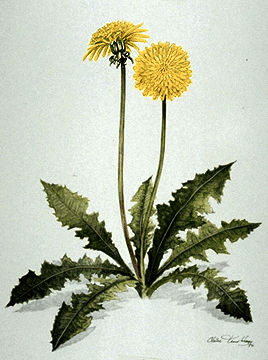Browse "Things"
-
Article
Dalhousie University
Its auspicious beginnings were soon marred by governmental indifference and sectarian rivalry. Both the colonial establishment and the college's board of governors were unenthusiastic, favouring instead the precedence of King's College.
"https://development.thecanadianencyclopedia.ca/images/tce_placeholder.jpg?v=e9dca980c9bdb3aa11e832e7ea94f5d9" // resources/views/front/categories/view.blade.php
https://development.thecanadianencyclopedia.ca/images/tce_placeholder.jpg?v=e9dca980c9bdb3aa11e832e7ea94f5d9
-
Article
DalTech
DalTech DalTech, previously known as Technical University of Nova Scotia, Halifax, was founded in 1907 by Act of the Nova Scotia Legislature (as Nova Scotia Technical College) and was the result of collaboration by Acadia, Dalhousie, King's College and Mount Allison universities with the Halifax Board of Trade and the Mining Society of Nova Scotia. It was established to afford facilities for scientific research and instruction and professional training in engineering and any other departments...
"https://development.thecanadianencyclopedia.ca/images/tce_placeholder.jpg?v=e9dca980c9bdb3aa11e832e7ea94f5d9" // resources/views/front/categories/view.blade.php
https://development.thecanadianencyclopedia.ca/images/tce_placeholder.jpg?v=e9dca980c9bdb3aa11e832e7ea94f5d9
-
Article
Dam
A dam is a structure built across a waterway to control or stop the flow of water. This is called impounding the flow of water. Dams can be built by animals, such as beavers, or constructed by humans. In some cases, they are even formed by natural geological forces.
"https://d2ttikhf7xbzbs.cloudfront.net/media/new_article_images/Dam/Dam.jpg" // resources/views/front/categories/view.blade.php
https://d2ttikhf7xbzbs.cloudfront.net/media/new_article_images/Dam/Dam.jpg
-
Article
Damselfly
Damselfly, thin-bodied, carnivorous insect with 2 pairs of long, membranous, narrow-based wings.
"https://development.thecanadianencyclopedia.ca/images/tce_placeholder.jpg?v=e9dca980c9bdb3aa11e832e7ea94f5d9" // resources/views/front/categories/view.blade.php
https://development.thecanadianencyclopedia.ca/images/tce_placeholder.jpg?v=e9dca980c9bdb3aa11e832e7ea94f5d9
-
Article
Dandelion
Dandelion [Fr, dent-de-lion, "lion's tooth"], perennial, herbaceous plant of family Compositae or Asteraceae. Over 1000 species have been named. Because dandelions reproduce without fertilization, innumerable variants have arisen. Common dandelion ( Taraxacum officinale) has many names including blowball, faceclock, dumble-dor (Newfoundland) and pissenlit (Québec).
"https://d2ttikhf7xbzbs.cloudfront.net/dandelion-pissenlit_4bdcd099-d910-46c9-a00b-9d2b805102e3.jpg" // resources/views/front/categories/view.blade.php
https://d2ttikhf7xbzbs.cloudfront.net/dandelion-pissenlit_4bdcd099-d910-46c9-a00b-9d2b805102e3.jpg
-
Article
Dangerous Offenders
Sentencing in criminal cases serves a variety of purposes, including deterrence, rehabilitation, denunciation and public protection. Purposes predominate depending on, for example, the nature and circumstances of the offence and the offender.
"https://development.thecanadianencyclopedia.ca/images/tce_placeholder.jpg?v=e9dca980c9bdb3aa11e832e7ea94f5d9" // resources/views/front/categories/view.blade.php
https://development.thecanadianencyclopedia.ca/images/tce_placeholder.jpg?v=e9dca980c9bdb3aa11e832e7ea94f5d9
-
Article
Daniels Case
On 14 April 2016, the Supreme Court of Canada ruled in Daniels v. Canada that the federal government, rather than provincial governments, holds the legal responsibility to legislate on issues related to Métis and Non-Status Indians. In a unanimous decision, the court found that Métis and Non-Status peoples are considered Indians under section 91(24) of the Constitution Act, 1867 — a section that concerns the federal government’s exclusive legislative powers. Recognition as Indians under this section of law is not the same as Indian Status, which is defined by the Indian Act. Therefore, the Daniels decision does not grant Indian Status to Métis or Non-Status peoples. However, the ruling could result in new discussions, negotiations and possible litigation with the federal government over land claims and access to education, health programs and other government services.
"https://d2ttikhf7xbzbs.cloudfront.net/media/media/7ac02b0f-118b-4ccb-b6dc-81f218b68954.jpg" // resources/views/front/categories/view.blade.php
https://d2ttikhf7xbzbs.cloudfront.net/media/media/7ac02b0f-118b-4ccb-b6dc-81f218b68954.jpg
-
Article
Darke Hall
Performance hall for the Conservatory of Performing Arts (formerly the Regina Conservatory of Music) at the University of Regina, as well as the Regina Symphony Orchestra (1929–70) and the Regina Musical Club (until 2007).
"https://d2ttikhf7xbzbs.cloudfront.net/Darke_Hall.jpg" // resources/views/front/categories/view.blade.php
https://d2ttikhf7xbzbs.cloudfront.net/Darke_Hall.jpg
-
Article
Dating in Archaeology
For those researchers working in the field of human history, the chronology of events remains a major element of reflection. Archaeologists have access to various techniques for dating archaeological sites or the objects found on those sites.
"https://d2ttikhf7xbzbs.cloudfront.net/media/media/5f50dd82-a267-475e-8f6b-4e5dcc32b135.jpg" // resources/views/front/categories/view.blade.php
https://d2ttikhf7xbzbs.cloudfront.net/media/media/5f50dd82-a267-475e-8f6b-4e5dcc32b135.jpg
-
"https://development.thecanadianencyclopedia.ca/images/tce_placeholder.jpg?v=e9dca980c9bdb3aa11e832e7ea94f5d9" // resources/views/front/categories/view.blade.php
https://development.thecanadianencyclopedia.ca/images/tce_placeholder.jpg?v=e9dca980c9bdb3aa11e832e7ea94f5d9
-
Article
David H. Hubel
David Hunter Hubel, FRS, Nobel Laureate, neurobiologist (born 27 February 1926 in Windsor, ON; died 22 September 2013 in Lincoln, Massachusetts). Dr. David Hubel advanced our understanding of how our eyes transmit and reconstitute the images we see moment by moment to our brains. He was a research scientist who used innovative craftsmanship to design and create the instruments and procedures he used to conduct studies on the visual cortex of the brain. His meticulous observations revolutionized cognitive neuroscience and his pioneering approach to the recording of individual neuronal cells propelled the field forward.
"https://d2ttikhf7xbzbs.cloudfront.net/davidhubel/davidhubel.jpg" // resources/views/front/categories/view.blade.php
https://d2ttikhf7xbzbs.cloudfront.net/davidhubel/davidhubel.jpg
-
Article
David Milgaard Case
David Milgaard was a 16-year-old hippie when he was charged with the rape and murder of Saskatoon nurse Gail Miller in 1969. Milgaard's prosecution for first degree murder at age 17 became one of Canada's most notorious wrongful convictions. He was finally released in 1992 after 23 years in prison. DNA evidence exonerated him in 1997 and led to the conviction of Larry Fisher, a serial sex offender, in 1999. Milgaard received an official apology from the Saskatchewan government in 1997 and a $10 million settlement in 1999. Milgaard became an advocate for prison reform and the rights of the accused and helped establish a federal commission to investigate cases of alleged wrongful conviction. This article contains sensitive material that may not be suitable for all audiences.
"https://d2ttikhf7xbzbs.cloudfront.net/media/media/1e75a485-5d28-4c4e-afb8-304b1ba7795f.jpg" // resources/views/front/categories/view.blade.php
https://d2ttikhf7xbzbs.cloudfront.net/media/media/1e75a485-5d28-4c4e-afb8-304b1ba7795f.jpg
-
Article
Davis Cup
Considered the world's pre-eminent men's team tennis tournament, the Davis Cup made its debut in 1900 when a Harvard student named Dwight Filley Davis donated the silver trophy as the prize for a team tournament that summer at the Longwood Cricket Club in Boston.
"https://development.thecanadianencyclopedia.ca/images/tce_placeholder.jpg?v=e9dca980c9bdb3aa11e832e7ea94f5d9" // resources/views/front/categories/view.blade.php
https://development.thecanadianencyclopedia.ca/images/tce_placeholder.jpg?v=e9dca980c9bdb3aa11e832e7ea94f5d9
-
Article
Dawson Archaeological Site
The Dawson site is an ancient Iroquoian village located on the Island of Montréal, next to Mount Royal. The site, which was initially located on a sand dune, covers about two acres.
"https://d2ttikhf7xbzbs.cloudfront.net/media/media/96890b03-5f94-4d4c-9109-577a21f8b989.jpg" // resources/views/front/categories/view.blade.php
https://d2ttikhf7xbzbs.cloudfront.net/media/media/96890b03-5f94-4d4c-9109-577a21f8b989.jpg
-
Article
Day Care
The licensed or approved care of young children, for all or part of the day, outside the children's own home. The 2 most common types of day care are centre care and family day care.
"https://development.thecanadianencyclopedia.ca/images/tce_placeholder.jpg?v=e9dca980c9bdb3aa11e832e7ea94f5d9" // resources/views/front/categories/view.blade.php
https://development.thecanadianencyclopedia.ca/images/tce_placeholder.jpg?v=e9dca980c9bdb3aa11e832e7ea94f5d9
